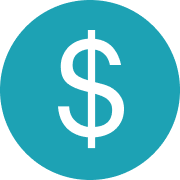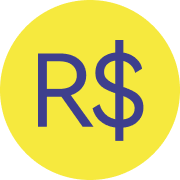
USDY to USD Converter and calculator


Conversion rates
Convert USDY to USD
Convert USD to USDY
USDY to USD chart
USDY to USD conversion data: Volatility and price changes of Ondo US Dollar Yield in USD
| Last 24 hours | Last 7 days | Last 30 days | Last 90 days | |
|---|---|---|---|---|
High | 1.11 USD | 1.11 USD | 1.12 USD | 1.12 USD |
Low | 1.09 USD | 1.08 USD | 1.08 USD | 1.07 USD |
Average | 0 USD | 0 USD | 0 USD | 0 USD |
Volatility | % | % | % | % |
Change | -0.91% | +0.87% | -0.81% | +1.72% |
Ondo US Dollar Yield information
USDY to USD market statistics
Current USDY to USD exchange rate
Ondo US Dollar Yield to United States Dollar is rising this week.More info about Ondo US Dollar Yield on Bitget
United States Dollar information
About the United States Dollar (USD)
What Is the United States Dollar (USD)?
The United States Dollar (USD), designated by the ISO code USD and commonly abbreviated as US$, is the official currency of the United States of America. It is one of the most recognizable and influential currencies in the world. The USD is used within the United States and its official territories, such as Puerto Rico, Guam, America Samoa, U.S. Virgin Islands, and Northern Marina Islands. Additionally, eleven other countries have adopted the USD as their official currency, including Ecuador, El Salvador, Zimbabwe, Palau, Marshall Islands, Panama, the British Virgin Islands, Turks and Caicos, Timor-Leste, Micronesia, and Bonaire.
The issuance and regulation of the USD are the responsibilities of the Federal Reserve System, the central bank of the United States. The Federal Reserve, or "the Fed," manages the country's monetary policy and ensures the stability and integrity of the currency. The U.S. Department of the Treasury, through the Bureau of Engraving and Printing, is tasked with the printing of paper currency, while the United States Mint produces coinage.
What Is the History of USD?
The United States Dollar (USD) has a rich history that mirrors the evolution of the United States. Initially grappling with diverse foreign currencies post-independence, the need for a unified system led to the Continental Congress adopting the dollar as the national currency on July 6, 1785. The choice was influenced by the Spanish dollar's prominence in the Americas. The Coinage Act of 1792 further established this move, creating the U.S. Mint and defining the dollar's value in gold and silver, initiating the bimetallic standard which stabilized the nation's economy and laid the groundwork for future financial growth. The 20th century saw the USD's global influence surge, especially with the 1944 Bretton Woods Agreement that pegged global currencies to the dollar, then linked to gold, making it the principal reserve currency worldwide. This status evolved in 1971 when the USD shifted to a fiat currency, backed by the U.S. government trust and credit.
Notes and Coins of USD
The U.S. currently prints currencies in denominations of $1, $2, $5, $10, $20, $50, and $100. The printing of notes higher than $100 ceased in 1946, with circulation formally stopping in 1969. Modern U.S. currency notes have incorporated additional colors since 2004 for differentiation, and plans are underway to add improved tactile features for visually impaired citizens.
The U.S. Mint also produces coins in denominations of 1 cent (penny), 5 cents (nickel), 10 cents (dime), 25 cents (quarter), 50 cents (half dollar), and 1 dollar. These coins are used for everyday transactions and also include collectible and commemorative versions.
The World’s Reserve Currency
The U.S. dollar's ascension to the status of the world's reserve currency is rooted in a confluence of historical events and economic strategies. Emerging as a dominant economic power in the early 20th century, the United States solidified the dollar's position through the establishment of the Federal Reserve in 1913 and the accumulation of significant gold reserves during World War I. The pivotal Bretton Woods Agreement in 1944, where 44 Allied nations pegged their currencies to the dollar, marked a defining moment, effectively linking global finance and trade to the U.S. currency. This arrangement was underpinned by the strength and size of the U.S. economy and the dominance of its financial markets. In 2022, the dollar constituted 59% of all foreign bank reserves, reflecting its enduring global influence. Despite discussions on de-dollarization, the U.S. dollar remains the principal reserve currency, a testament to its continued centrality in the international economic system.
What Is the US Dollar Index (USDX)?
The US Dollar Index (USDX) is a vital financial tool that measures the value of the United States Dollar (USD) against a basket of foreign currencies. Established in 1973, the USDX was created in the wake of the Bretton Woods Agreement's collapse. The index includes a diverse mix of currencies, originally comprising 17 currencies from 17 countries. However, with the introduction of the Euro in 1999, the index was adjusted, and it now primarily tracks the USD against six major world currencies: the Euro (EUR), Japanese Yen (JPY), British Pound (GBP), Canadian Dollar (CAD), Swedish Krona (SEK), and Swiss Franc (CHF).
What Is the Relationship Between USD and Gold?
Historically, the United States Dollar (USD) was closely tied to gold, operating under the gold standard system. This system, formalized in the early 20th century, pegged the value of the USD to a specific quantity of gold, offering stability and confidence in the currency's value. However, in 1971, this changed dramatically with the "Nixon Shock," which ended the convertibility of the USD into gold and shifted the currency to a fiat system. This move detached the USD's value from gold, making it subject to market forces and government policies.
Popular conversions










Hot promotions
How to convert USDY to USD



Buy
Sell
| Merchants (trades/completion rate) | Price | Amount/limit Low to high | Payment methods | Zero fees Action |
|---|
Popular Ondo US Dollar Yield Converter









Popular cryptocurrencies to USD










USDY to USD Conversion tables
| Amount | 13:59 today | 24 hours ago | 24h change |
|---|---|---|---|
| 0.5 USDY | $0.5476 | $0.5526 | -0.91% |
| 1 USDY | $1.1 | $1.11 | -0.91% |
| 5 USDY | $5.48 | $5.53 | -0.91% |
| 10 USDY | $10.95 | $11.05 | -0.91% |
| 50 USDY | $54.76 | $55.26 | -0.91% |
| 100 USDY | $109.51 | $110.52 | -0.91% |
| 500 USDY | $547.55 | $552.61 | -0.91% |
| 1000 USDY | $1,095.11 | $1,105.22 | -0.91% |
USDY to USD FAQ
What factors influence the conversion rate of USDY to USD?
Purchase other cryptocurrencies with similar market cap











Other crypto price predictions
 Bitcoin(BTC)Price predictions
Bitcoin(BTC)Price predictions Ethereum(ETH)Price predictions
Ethereum(ETH)Price predictions Celestia(TIA)Price predictions
Celestia(TIA)Price predictions Solana(SOL)Price predictions
Solana(SOL)Price predictions Worldcoin(WLD)Price predictions
Worldcoin(WLD)Price predictions Bittensor(TAO)Price predictions
Bittensor(TAO)Price predictions Dogecoin(DOGE)Price predictions
Dogecoin(DOGE)Price predictions PepeCoin(PEPECOIN)Price predictions
PepeCoin(PEPECOIN)Price predictions Pandora(PANDORA)Price predictions
Pandora(PANDORA)Price predictions ORDI(ORDI)Price predictions
ORDI(ORDI)Price predictionsDiscover more cryptocurrencies
Latest coin listings on Bitget











